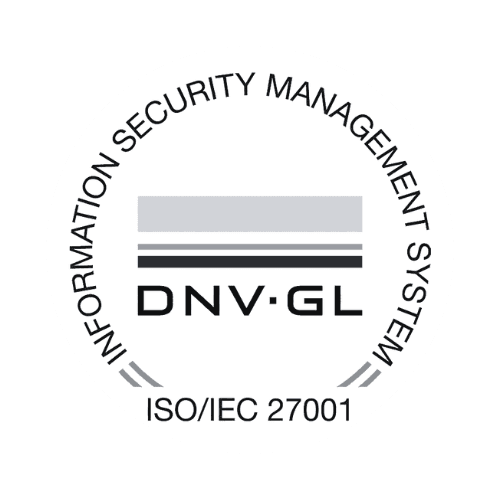Nichts verpassen & anmelden:
Written by AI
The Challenges of Leading a Multigenerational Workforce in the Digital Age
In today's workplace, leaders face numerous challenges, especially when it comes to leading a multigenerational workforce in the digital age. The different generations bring different work styles, preferences, and expectations that need to be considered in order to create a productive and harmonious work environment.
Understanding the Multigenerational Workforce
Before we address the specific challenges, it's important to understand the different generations in the workplace. Today's workforce usually encompasses four generations: Baby Boomers, Generation X, Millennials, and Generation Z.
These generations have different life experiences, values, and backgrounds that influence their attitudes towards work. Leaders must be aware that these differences come into play and can influence the work dynamic.
The Various Generations in the Workplace
Baby Boomers are usually disciplined and goal-oriented employees who often place a high value on hierarchy and structure. They bring a wealth of experience and are generally loyal team members.
Generation X was born in a time of technological change and is often more flexible when it comes to working hours and locations. They are independent and value work-life balance.
Millennials, also known as Generation Y, have grown up with technology and are often very connected and agile. They value meaningful work, feedback, and development opportunities.
The youngest Generation Z has grown up in a world of constant technological innovations. They are digital natives and bring fresh perspectives and ideas, but may have less experience than other generations.
Different Work Styles and Preferences
It's important to note that these descriptions do not apply to every individual, as each person is unique and can operate outside of these typical characteristics. However, they are helpful in identifying certain tendencies and preferences that should be considered when leading a multigenerational workforce.
The challenge lies in understanding the different work styles and preferences and finding ways to effectively integrate them. For example, implementing flexible work hours or introducing virtual collaboration tools can help meet the needs of the different generations.
It's also important to note that each generation brings its own strengths and abilities. Baby Boomers have decades of experience and are often experts in their field. They can be valuable mentors to younger employees and pass on their knowledge.
Generation X, on the other hand, is often characterized by their ability to embrace change and adapt to new technologies. They are often the ones to find innovative solutions and chart new paths to tackle challenges.
Millennials bring their technical skills and ability to collaborate. They are often adept at working in teams and bringing different perspectives to find creative solutions.
Generation Z is the youngest generation in the workplace and brings their fresh perspectives and ability to adapt quickly to changes. They are often tech-savvy and can quickly learn and use new technologies.
Leadership in the Digital Age
In an increasingly digital work environment, leaders need to understand and embrace the role of technology in modern leadership. Digitalization has significant impacts on how we communicate and collaborate.
The Role of Technology in Modern Leadership
Modern leaders need to be familiar with digital tools and platforms that facilitate communication and collaboration. From video conferences and virtual project management tools to messaging apps and social networks, using technology properly can enhance efficiency and productivity.
However, it is important not to neglect the human aspect. Leaders should continue to cultivate personal interactions and ensure that technology serves as a support, not a replacement for interpersonal relationships.
Adapting to Evolving Communication Methods
The way we communicate has changed significantly with the increasing use of technology and social media. Leaders need to be able to adapt to these changes and develop effective communication strategies to engage with the different generations.
This may mean using different communication channels depending on the preferences and habits of individual employees. Some may prefer emails, while others may prefer video calls or instant messaging.
The ability to express oneself clearly and precisely is also crucial. Leaders should ensure that their messages are easily understood and prevent misunderstandings.
Aside from the technological aspects of modern leadership, it is also important to consider the impacts of the digital age on work culture. The increasing flexibility and mobility enabled by technology have led to a change in how we work.
In the digital age, leaders have the opportunity to work remotely and lead virtual teams. This opens up new opportunities for collaboration across geographical boundaries and allows for a better work-life balance for employees.
However, challenges may also arise. The separation of work and personal life can become more difficult, as technology allows for constant accessibility. Leaders need to ensure that their employees have the opportunity to rest and disconnect to avoid burnout and overload.
Furthermore, leadership in the digital age also requires continuous development and adaptation. Technology is constantly evolving, and leaders need to be ready to explore and utilize new tools and trends.
By continuously learning and staying up to date, leaders can ensure that they can make the most of the opportunities and challenges of the digital age and successfully lead their teams.
Strategies for Effective Leadership of a Multigenerational Workforce
To effectively lead a multigenerational workforce, leaders must implement specific strategies to promote collaboration and teamwork and create an inclusive work culture.
Promoting Collaboration and Teamwork
A multigenerational workforce offers the opportunity to leverage a variety of perspectives and skills. Leaders should ensure that employees have the opportunity to work in interdisciplinary teams and learn from each other.
Establishing open communication channels and promoting knowledge exchange between generations can help ensure that each team member benefits from the strengths of others.
Creating an Inclusive Work Culture
An inclusive work culture means that all employees, regardless of their age or generation, are respected, valued, and included. Leaders should break down barriers and ensure that all voices are heard.
It is important to ensure that company policies and procedures are designed to consider the diversity of the workforce and provide equal development opportunities for people of all generations.
Promoting collaboration and teamwork in a multigenerational workforce requires a deep understanding of the different work styles and communication preferences of the different generations. Leaders should be sensitive to these differences and ensure that all team members feel heard and valued.
In addition to promoting an inclusive work culture, leaders can also implement mentoring programs to facilitate knowledge transfer between generations. Older employees can pass on their expertise and experience to younger colleagues, while younger employees can bring fresh perspectives and innovative ideas to propel the organization forward.
Challenges and Solutions
Leading a multigenerational workforce in the digital age certainly presents challenges. The following aspects are particularly challenging:
Dealing with Intergenerational Conflicts
It is inevitable that different generations have different perspectives and opinions. Conflicts can arise when it comes to implementing changes, understanding working methods, or communication.
Leaders must be able to recognize, address, and find solutions to conflicts that are based on collaboration and willingness to compromise. Open communication and mediation can help promote understanding and respect between generations.
Bridging the Digital Divide
Not all employees are equipped with the same technological competence. It can be a challenge to ensure that all generations have the skills required to be successful in the digital work environment.
Leaders can offer training and development programs to improve employees' technical skills and provide them with the confidence and knowledge they need to succeed.
Flexibility and Adaptability
Another important challenge in leading a multigenerational workforce is fostering the flexibility and adaptability of employees. Each generation has different expectations for their work environment and conditions, which can lead to tensions and dissatisfaction.
It is crucial for leaders to have an open ear for the needs and concerns of all generations and offer flexible work models as well as individual solutions. By creating a supportive and adaptable corporate culture, conflicts can be minimized and employee satisfaction and productivity can be increased.
The Future of Multigenerational Leadership
Leading a multigenerational workforce will continue to be of great importance in the future. It is important for leaders to prepare for the changes that will come with the next generation of employees and take appropriate measures to develop talented leaders for the future.
Preparing for the Future of Work
The working world is constantly changing, and leaders need to prepare for the trends and developments that will affect how we work. Technological advancement, globalization, and the increasing importance of flexibility will continue to shape the work environment.
Leaders should be proactive and prepare for the changing requirements to successfully lead their teams through these changes.
Developing Leaders for the Next Generation
The next generation of employees will have different expectations and requirements. They will have grown up with digital technologies and have different values and ideas about work.
It is crucial for leaders to be able to adapt to these changes and effectively lead the next generations of employees. This may require adapting leadership styles and practices to meet the demands of the next generation.
Overall, leading a multigenerational workforce in the digital age is a challenging task. To be successful, leaders must understand the different needs and work styles of the different generations and develop tailored strategies to effectively lead and motivate them. By promoting collaboration and teamwork, creating an inclusive work culture, and providing training and development programs, leaders can create a positive and productive work environment in which all generations can succeed.








